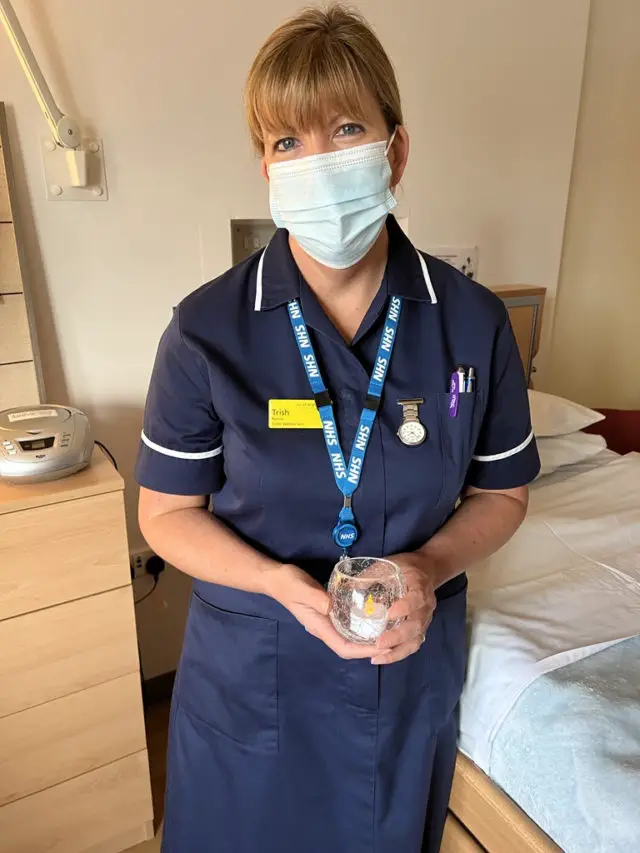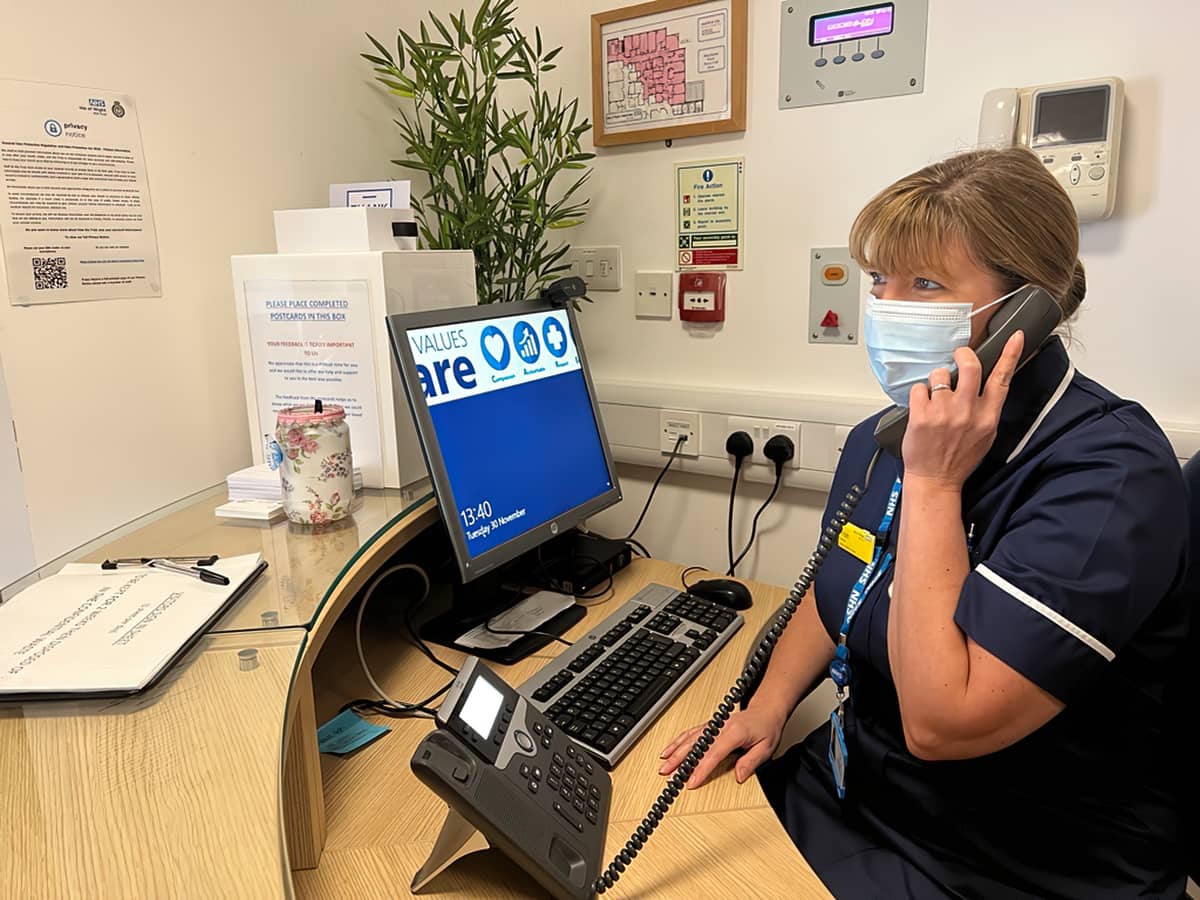The End of Life Care Ward, Wellow Unit at the Isle of Wight NHS Trust have launched a new Bereavement Follow Up Call Service for family members that have been bereaved after their loved ones have died.
The new service, that is launching this National Grief Awareness Week, starting Thursday 2nd December until Wednesday 8th December, will ensure family members are given that extra layer of support to help them after the death of their loved one.

Family members can then also be referred onto a specialist bereavement follow up service if they need further support
Reeves: Felt families were sometimes left adrift afterwards
Talking about the new service, Trish Reeves, Ward Sister for Wellow Unit said,
“We opened Wellow Unit in February 2020 and since then we have been looking at ways in how we can improve the care and support we offer to patients and their loved ones.
“We felt that there was a need for additional support to be put in place for the patient’s families once they had died, as often patients and their relatives are here on the unit for several days and we felt that the families were sometimes left adrift afterwards. As a result we have now set up the Bereavement Follow Up Service.
“So when a patient dies we will arrange to follow up with their loved one seven days after with a phone call and again six weeks after. This is to help them to keep a link with our unit, we can check with them to see they are doing OK and that they have managed to work through the immediate things that need to be done in terms of the death certificate and collecting belongings.
“It is also there to ensure they are doing emotionally ok at this really difficult time. We can also identify when people may need additional support and we can help to signpost them to the right people such as Mountbatten Hospice Bereavement Services, which is available for everyone. Where we would have already built up that relationship with them on the unit we can also be on hand to just to talk things through with people who understand where they are at.”
Moody: Unsupported and unresolved grief can last many more years
Talking about the impact grief can have on us Consultant Nurse and Clinical Director for End of Life Care, Shane Moody said,
“The last year has been challenging due to the Covid-19 pandemic and from a healthcare worker perspective this has affected the way we care for our patients and particularly when we care for them at the end of their life and support their family in that difficult time.
“During this year’s Grief Awareness Week I want to encourage others to talk about grief and the way it affects us all. Our staff in particular will not have only experienced grief professionally but also personally.
“What we know about grief is when it is uncomplicated and straight forward it can last between two to three years. When it becomes complicated, unsupported and unresolved it can last between five to seven years. This is why it is so important to take that first step to reach out and talk to each other.
“Grief can make us feel angry, sad or guilty. It can affect people’s memory, concentration, motivation, thoughts and beliefs. It can also cause some people to withdraw from others and become more isolated. There are lots of ways people can get support when they experience a bereavement and their grief and it can help to talk to someone who is independent and trained to listen to, and support you, through your illness.”
Mountbatten’s expert Clinical Psychologists and counsellors offer individual and group support. You can find out more about Mountbatten’s bereavement support on their Website.
Open to everyone
The Bereavement Support Team at the Isle of Wight NHS Trust are also available to everyone – whether or not you, or your loved one, have previously been supported by Mountbatten.
The team can offer up to six sessions as well as the option to attend the Bereavement Group for up to a year where you can meet other people who have suffered a similar experience. All support provided is confidential.
You can ask your GP to refer you to this service, or you can contact the team directly on: 01983 217 346.
News shared by Isle of Wight NHS Trust, in their own words. Ed





